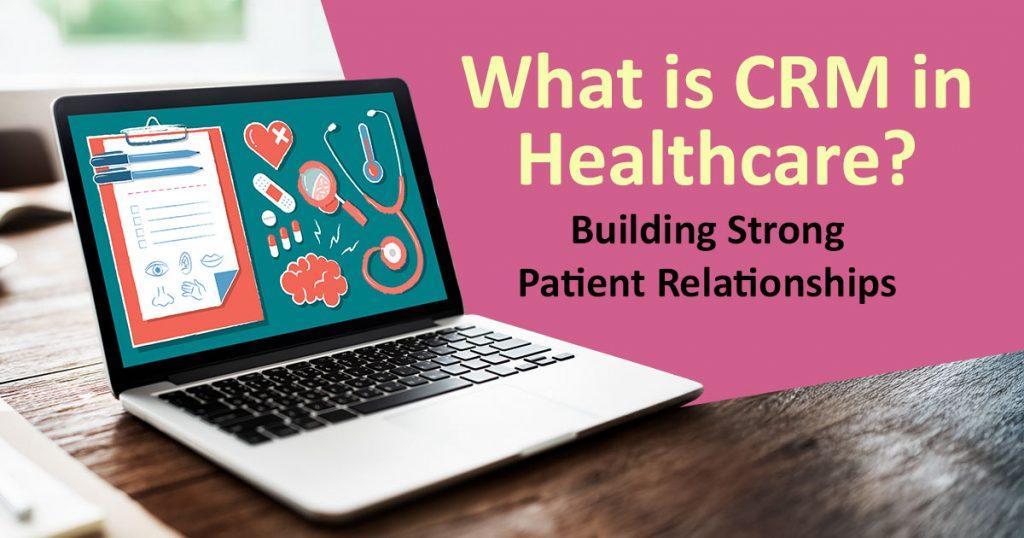Customer Relationship Management (CRM) software is a flexible tool that plays a crucial role in many industries. Essentially, CRM is used to simplify and improve how businesses manage interactions with their customers. This helps build better relationships and supports business growth. In industries like retail, finance, and telecommunications, CRM has become an essential component of contemporary work practices by integrating and automating complicated tasks. Research shows that companies using CRM systems can boost their sales by up to 29% and greatly enhance customer satisfaction.
The impact of CRM isn’t confined to traditional business sectors; the healthcare industry has also adopted this technology to transform patient care. As there’s growing demand for personalized and efficient healthcare services, CRM software is a vital component of contemporary healthcare management.
What Does CRM Stand for in the Realm of Patient Care?
In healthcare, Customer Relationship Management (CRM) means using technology to create more organized and personalized care for patients. Unlike CRMs in other industries that mainly handle customer interactions and sales data, healthcare CRMs are specifically designed for patient care. They gather and organize all patient information in one place, including medical history, appointment schedules, billing, and insurance information.
Healthcare CRMs simplify tasks by automating them. For example, they can send automatic reminders about upcoming appointments and follow-up care, which reduces the workload on healthcare staff and prevents mistakes. This system makes sure patients receive important updates and personalized advice, helping to keep them engaged and satisfied with their care.
CRMs are especially useful in managing patient records, ensuring they are always accurate and current. They also improve communication, making it easier for healthcare providers and patients to interact effectively. Additionally, CRMs help healthcare organizations analyze data to understand patient trends and outcomes better, allowing for more informed decision-making. CRM systems contribute significantly to the improvement of the effectiveness and efficiency of healthcare delivery by connecting all of these processes.
Benefits and Purpose of CRM in Healthcare
- CRMs enhance patient engagement with personalized communication, boosting satisfaction.
- Automation of administrative tasks like scheduling reduces workload and errors.
- Centralized data management ensures easy access and accuracy of patient information.
- Personalized care and follow-ups improve patient loyalty and retention.
- CRMs facilitate seamless collaboration by providing a unified platform for data sharing.
- Analytics tools in CRMs offer insights into patient trends for better decision-making.
- CRMs ensure secure management of patient data, complying with healthcare regulations.
- Data analysis through CRMs optimizes resource allocation for improved service delivery.
The primary purpose is to enhance patient care and operational efficiency in healthcare.
Ensuring Compatibility and Efficiency of Your Healthcare CRM
To improve healthcare operations, it’s important to choose a CRM that fits your needs well. Here’s how you can tell if your healthcare CRM is both compatible and efficient:
Integration Capabilities
Make sure the CRM can easily work with your current systems, like Electronic Health Records (EHRs) and billing software. For example, a CRM that connects with systems like Epic or Cerner can help manage patient data and billing smoothly.
User-Friendly Interface
The CRM should be easy for your staff to use without needing a lot of training. Features like simple drag-and-drop tools and clear dashboards can make it easier for everyone to get started.
Customization Options
Look for a CRM that lets you adjust fields and reports to fit your specific practices. For instance, if you’re a cardiology clinic, the CRM should help you track heart-related patient information.
Scalability
As your healthcare facility grows, the CRM should be able to handle more patients and users without issues. A scalable CRM like Salesforce Health Cloud can grow with your needs without causing downtime.
Data Security and Compliance
Ensure the CRM follows laws like HIPAA to keep patient data safe. Features like data encryption and access controls are important for security.
Robust Reporting and Analytics
The CRM should provide useful analytics like patient visit patterns and treatment results. Dashboards that show patient demographics can help you plan services better.
Reliable Customer Support
Good customer support is crucial. A CRM offering 24/7 support, like Microsoft Dynamics 365, can help resolve issues quickly to avoid work interruptions.
Cost-Effectiveness
Check if the CRM’s price matches its features and fits your budget while providing necessary functions.
The Future of CRM in Healthcare and Beyond
CRM systems are set to keep changing industries like healthcare by using new technologies and smart ideas. Looking forward, CRMs will use artificial intelligence (AI) and machine learning to help predict what patients might need, allowing healthcare providers to plan better and make informed decisions. This will improve patient care by offering more personalized treatments and making operations smoother.
Additionally, with the use of Internet of Things (IoT) devices, CRMs will be able to gather real-time data, giving a clearer picture of patient health and outcomes. This connection helps healthcare workers act quickly, leading to better patient results and more efficient processes.
As virtual healthcare becomes more common, CRMs will be key in managing online patient interactions, ensuring patients receive consistent care even without in-person visits. The use of blockchain in CRMs might also boost data security, providing strong protection and safe sharing of patient information.
In short, as CRM technology advances, it will change how healthcare systems work, moving them towards being more efficient and patient-focused. These improvements won’t just benefit healthcare; they will also raise the bar for how other industries operate, bringing more efficiency and innovation.
